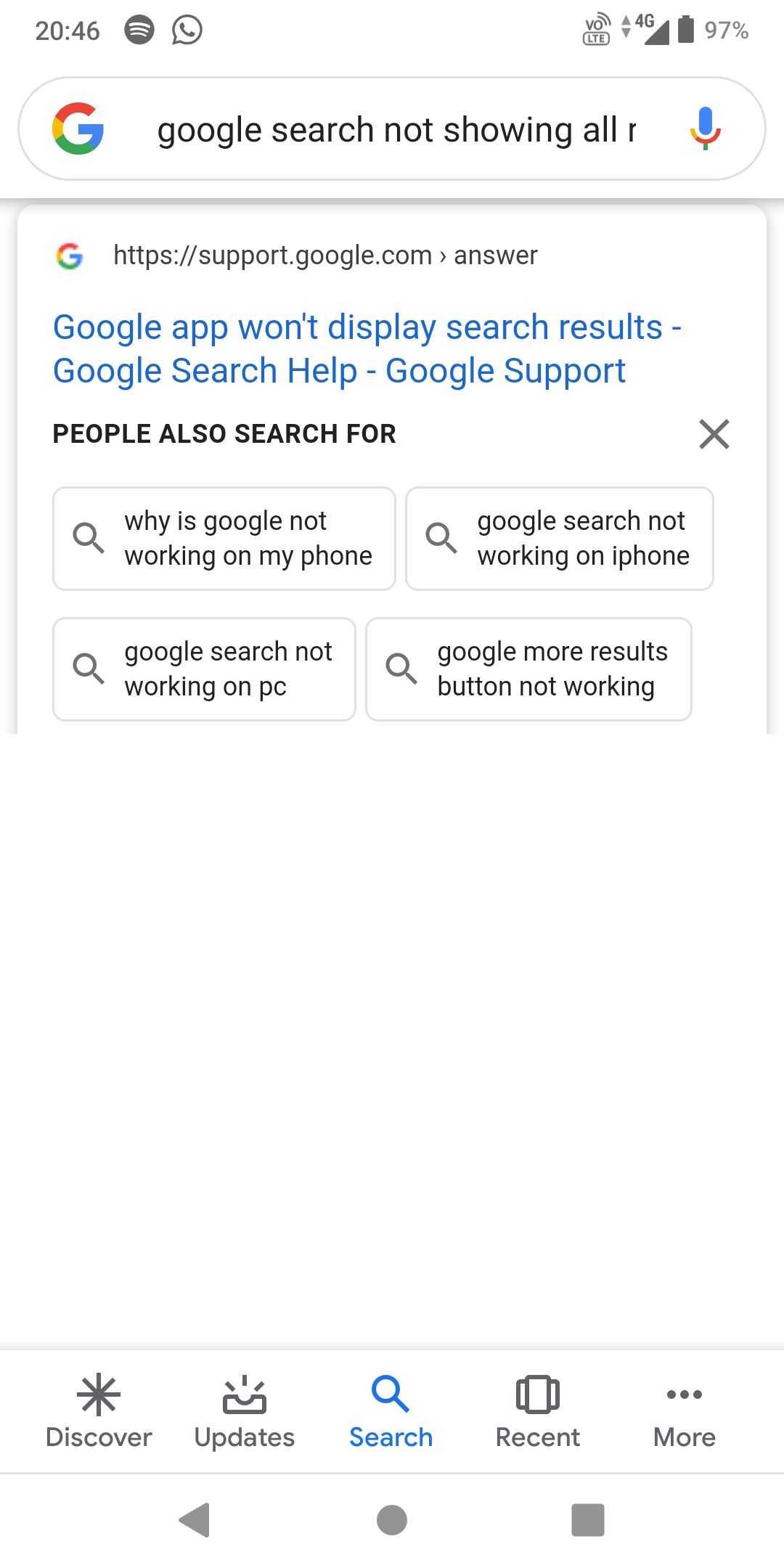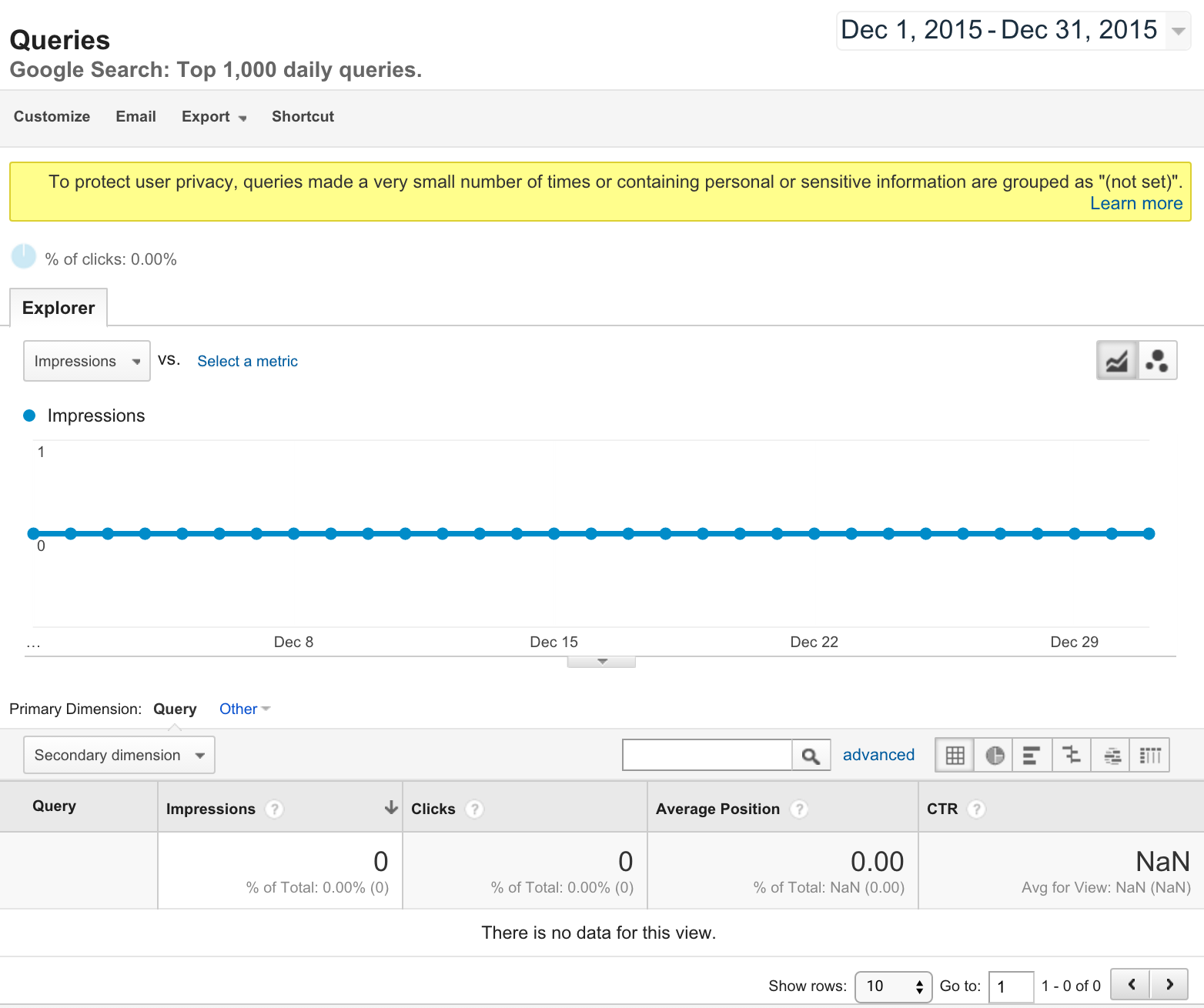Ever felt like Google just isn't getting you? It's not just you: frustrating search results are a widespread problem, but thankfully, often solvable. The digital age has given us access to a vast ocean of information, but navigating that ocean can be incredibly difficult when your search engine seems to be working against you.
We've all been there: typing in a seemingly straightforward query, only to be bombarded with irrelevant links, outdated articles, or even worse, a complete absence of results. Whether it's a technical glitch, a misconfiguration, or simply a misunderstanding of how search engines work, the feeling of helplessness can be incredibly frustrating. Many users have reported experiencing exactly this, particularly when using Google in the Chrome browser. The experience of typing in a very focused search query and receiving a whole page of unrelated troubleshooting website results is, unfortunately, becoming increasingly common. But before you resign yourself to a lifetime of digital frustration, let's explore some potential culprits and, more importantly, some effective solutions.
| Topic | Description |
|---|---|
| Common Search Issues | Irrelevant results, no results, inability to locate specific files, persistent troubleshooting recommendations. |
| Potential Causes | Unstable internet connection, outdated browser, malware/adware, incorrect search settings, website structure issues. |
| Troubleshooting Steps | Check network connection, clear browser cache, reset browser settings, use advanced search operators, update browser, try searching as administrator. |
| Advanced Search Techniques | Use quotation marks for exact phrases, leverage advanced search operators (AND, OR, NOT), refine search terms. |
| Google Scholar | Platform for scholarly literature search, covering articles, theses, books, abstracts, and court opinions. |
| AI Overviews | Google's AI-powered search result summaries aimed at improving user satisfaction and handling complex queries. |
| User Feedback | Reporting dissatisfaction and providing suggestions through the "more feedback" option on search results. |
| Website Optimization | Improving website structure, using synonyms, and ensuring content relevance to avoid "no results" pages. |
| Autocomplete Fails | Unexpected or bizarre search suggestions based on popular but sometimes odd user searches. |
| Connectivity Problems | Errors due to lack of internet connectivity, often resolved by checking connection or reinstalling Chrome. |
| Content Alignment | The importance of aligning website content with user queries to avoid issues like Google not showing search results. |
One of the first places to investigate is your internet connection. A slow or unstable connection can wreak havoc on your search experience, leading to slow loading times, incomplete results, or even outright errors. Ensure your connection is stable and running at an acceptable speed. If you're using Wi-Fi, try moving closer to the router or switching to a wired connection. Sometimes the simplest solution is the most effective. After verifying your internet connection, the next step is to examine your browser. An outdated browser can often be the culprit behind search result anomalies. Make sure you're running the latest version of your browser, as updates often include performance improvements, bug fixes, and enhanced security features. In addition to updating your browser, clearing your browser's cache and cookies can also help resolve search issues. These stored files can sometimes become corrupted or outdated, leading to unexpected behavior. Clearing them provides a fresh start for your browser and can often resolve search-related problems.
- Shannon Sharpes Kids Love Life What You Need To Know
- Unlock Twitter Insights Sotwes Trend Profile Explorer
Another issue that is the "select files dont appear in the search results." and "Windows search service not running." This typically pertains to local computer searches rather than Google searches, it suggests a problem with the computer's indexing service. Ensuring the Windows search service is running and properly indexing your files can resolve this. You might need to run repairs as an administrator to fix underlying issues with the search service. This might seem disconnected to Google searches, but if your local machine's search functionalities are broken, it could influence how your browser and other applications interact with search engines. Therefore, it's worth checking the general health of your system before diving deep into Google-specific settings. Running repairs as an administrator can sometimes resolve underlying system issues that are interfering with your browsing and search experience. This elevated access allows the repair tools to make changes that might be restricted under a standard user account.
In the realm of Google-specific troubleshooting, several settings can impact your search results. Google offers a range of filters and customization options designed to tailor your search experience. You can filter results by language, exclude explicit content using SafeSearch, and prioritize results based on your preferred language. Accessing these settings and fine-tuning them to your preferences can significantly improve the relevance and quality of your search results. To access these settings, navigate to the Google search settings page, typically found in the bottom right corner of the search results page or within your Google account settings. Explore the various options and experiment with different configurations to find what works best for you.
Beyond basic settings, mastering advanced search operators can unlock a new level of precision and control over your search queries. These operators are special commands that you can include in your search terms to refine your results. For example, using quotation marks around a phrase tells Google to search for those exact words in that specific order. The "AND" operator ensures that all specified terms are included in the results, while the "OR" operator broadens your search to include any of the specified terms. The "NOT" operator excludes results containing a particular word or phrase. By combining these operators, you can create highly targeted search queries that yield far more relevant results. For instance, if you're searching for information about "artificial intelligence" but want to exclude results related to "robotics," you could use the query "artificial intelligence NOT robotics." Experimenting with these operators can dramatically improve your search accuracy and efficiency.
- Aaron Pierres Dating Life Teyana Taylor Romance News
- Eric Stonestreet Lindsay Wedding Plans The Full Story
Another aspect of optimizing your Google search experience is understanding how Google itself is evolving. In recent years, Google has been increasingly incorporating artificial intelligence into its search algorithms and user interface. One example of this is the introduction of AI Overviews, which provide concise summaries of search results directly at the top of the page. These overviews are designed to answer complex questions and provide users with a quick overview of the topic. While AI Overviews can be incredibly helpful, they can also sometimes be inaccurate or incomplete. It's important to critically evaluate the information provided in these overviews and not rely on them solely. Always cross-reference the information with other sources and use your own judgment to determine its accuracy and relevance. The feedback that users have been giving shows that, with AI Overviews, people have higher satisfaction with their search results, and they\u2019re asking longer, more complex questions that they know google can now help with.
Furthermore, it's worth exploring the world of Google Scholar if you're looking for academic research and scholarly literature. This specialized search engine focuses on providing access to articles, theses, books, abstracts, and court opinions from a wide range of disciplines and sources. Google Scholar can be an invaluable tool for students, researchers, and anyone interested in delving deeper into a particular topic. The platform offers advanced search features specifically tailored for academic research, such as the ability to filter results by publication date, author, and journal. It also provides citation information, allowing you to easily track the impact and influence of different research papers. If you're tired of sifting through irrelevant results in the regular Google search engine, Google Scholar can provide a more focused and reliable source of information.
Malware and adware can be a serious menace when Google search does not load. They can not only disrupt your browsing experience but also potentially compromise your security. Malware and adware can inject unwanted advertisements into your search results, redirect you to malicious websites, or even prevent Google search from loading altogether. If you suspect that your computer is infected with malware or adware, it's essential to run a thorough scan using a reputable antivirus program. Several free and paid antivirus programs are available, each offering varying levels of protection. Choose a program that suits your needs and budget, and make sure to keep it updated with the latest virus definitions. In addition to running regular antivirus scans, it's also important to practice safe browsing habits to minimize your risk of infection. Avoid clicking on suspicious links, downloading files from untrusted sources, and visiting websites with a questionable reputation.
The quality and structure of a website can significantly impact its visibility and ranking in Google search results. Google's algorithm prioritizes websites that offer original, informative, and valuable content. If your website's content is poorly written, outdated, or irrelevant to user queries, it's less likely to appear in search results. To improve your website's ranking, focus on creating high-quality, original content that addresses the needs and interests of your target audience. Conduct thorough keyword research to identify the terms and phrases that people are using to search for information related to your website's topic. Incorporate these keywords naturally into your content, but avoid keyword stuffing, which can negatively impact your ranking. In addition to content quality, website structure also plays a crucial role. Ensure that your website has a clear and logical structure, with easy navigation and well-organized content. Use descriptive headings and subheadings to break up your content and make it easier to read. Optimize your website for mobile devices, as mobile-friendliness is a key ranking factor. A well-structured and optimized website is more likely to attract visitors and improve its ranking in Google search results. The first step is to start with a solid foundation for your website structure.
What are Google autocomplete fails? As you type your search query, Google Autocomplete is a feature that suggests terms and phrases. Although Autocomplete is intended to make searching faster and easier, it can occasionally reveal the strange and peculiar curiosities of human behavior because the suggestions are based on what real people are looking for. It\u2019s designed to make searching faster and easier.
Ultimately, improving your Google search results is an ongoing process that requires a combination of technical troubleshooting, strategic optimization, and critical thinking. By understanding how search engines work, mastering advanced search techniques, and staying informed about the latest algorithm updates, you can take control of your search experience and find the information you need quickly and efficiently.
- Paget Brewsters Family Life Does She Have Kids Rumors Debunked
- Jessica Tarlovs Husband Brian Mckenna Family More


